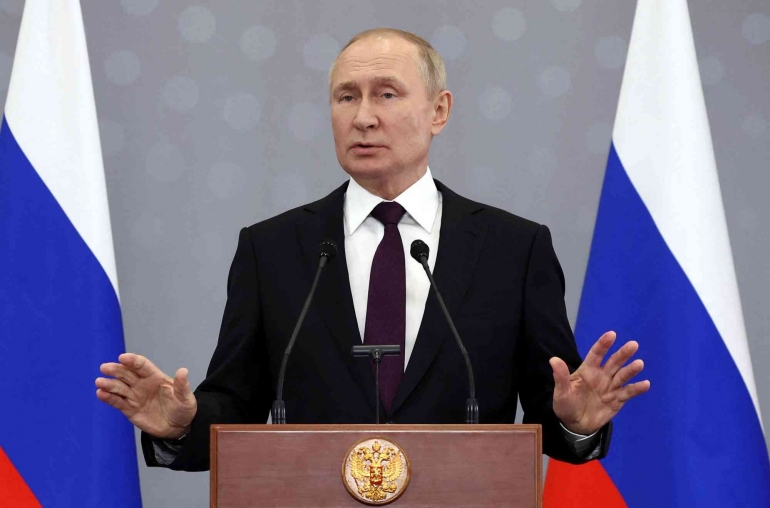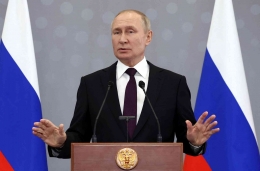Conflict Breaks
The war games and massive mobilization of the Russian Federation's armed forces at the border in late 2021 with Ukraine have worried Europe and the world. The moment occurred during the issue of Ukraine wanting NATO membership amid tensions with its neighboring country. The perception that Russia would attack Ukraine had previously been dismissed by Russian government officials. However, on the morning of February 24, 2022, President Vladimir Putin announced in a speech that Russian troops had deployed what he described as a "special military operation" to Ukraine and declared war on Ukraine. Initial attacks took place in Kiev, Odessa, Kharkiv and Mariupol.
Western and World Response
Most of the world has opposed Russia's military incursion on the sovereignty of neighboring Ukraine. The United States military allied organizations (NATO) responded to be on the side of Ukraine by supporting the readiness of Ukrainian military weapons and logistics. European countries and the United States are prepared and have prepared political and economic sanctions against Russia in order to suppress and weaken Russia from the international system and the global economy. Responses in Asia have been mixed. The only Asia-Pacific countries are Japan, South Korea, Singapore, and Australia which have followed the imposition of sanctions against Russia. Countries recognized as having close ties to Russia such as India and China responded neutrally. India chooses to be careful not to impose sanctions and China does not call Russia's actions an invasion. The archipelagic state of Indonesia does not support the Russian attack but maintains good relations with Russia and provides humanitarian assistance to Ukraine.
'Military Operations' As 'Unacceptable Threat'
President Vladimir Putin declared "special military operations" an "unacceptable threat" as an appropriate measure to prevent potential aggression in Russia's eastern region, the Crimean Peninsula. Putin assumed that the threat came from Western countries (NATO) who were preparing an attack on Crimea.
"Last year, we suggested to NATO that we sign a security agreement but it was not listened to and they have other, different plans, an attack on Crimea is being prepared. The alliance began military development of the territories adjacent to us" and called the fighting "inevitable", President Putin said.
On the other hand, the emergence of the paramilitary group Azov Regiment is now part of the Ukrainian National Guard Unit. The Russians believe that this group is based on and adheres to the ideology of neo-Nazism. President Putin strongly reassured his troops during the Victory Parade on Red Square that Russian troops fought in Ukraine for the same reasons Soviet troops did during World War II, namely against Nazi Germany. With this, another unacceptable threat to the country President Putin is referring to is the presence of the neo-Nazi Azov Regiment group in Ukraine.
Ukraine and the West (NATO) denied the two statements and considered them a misunderstanding. NATO never had any plans to militarily seize Crimea from Russia for Ukraine to return. Misperceptions about strengthening NATO's military power in the region bordering Ukraine. The allegation of neo-Nazism in Ukraine is also incorrect. The West considers that Russia is trying to survive the many European countries close to the United States and its allies.
NATO Breach of Promise? What Was Violated?







